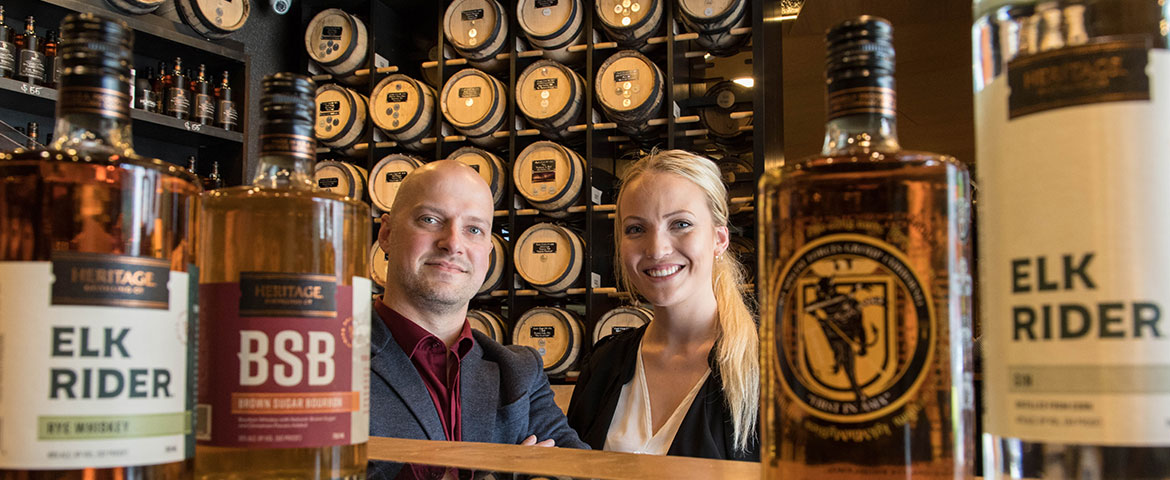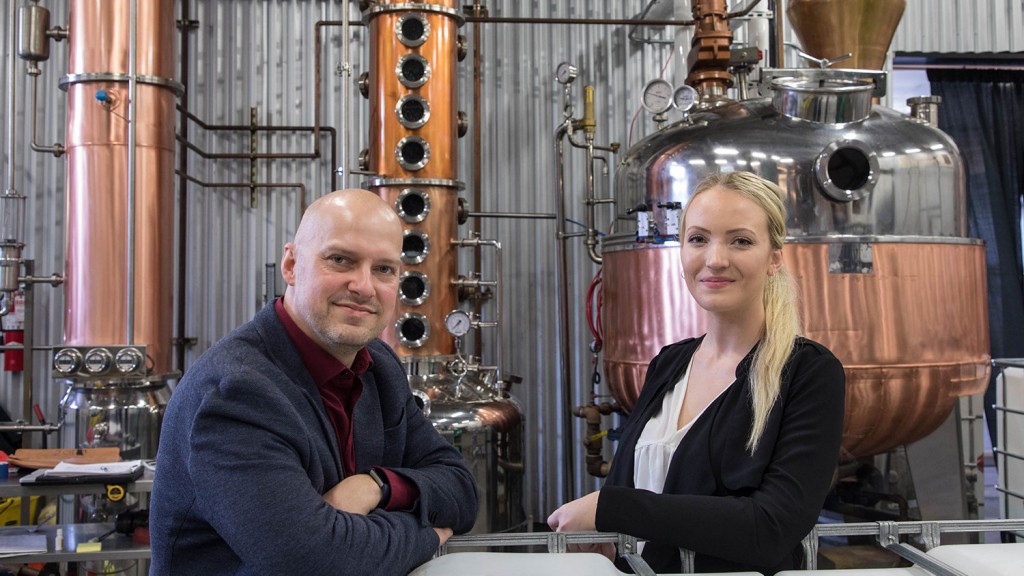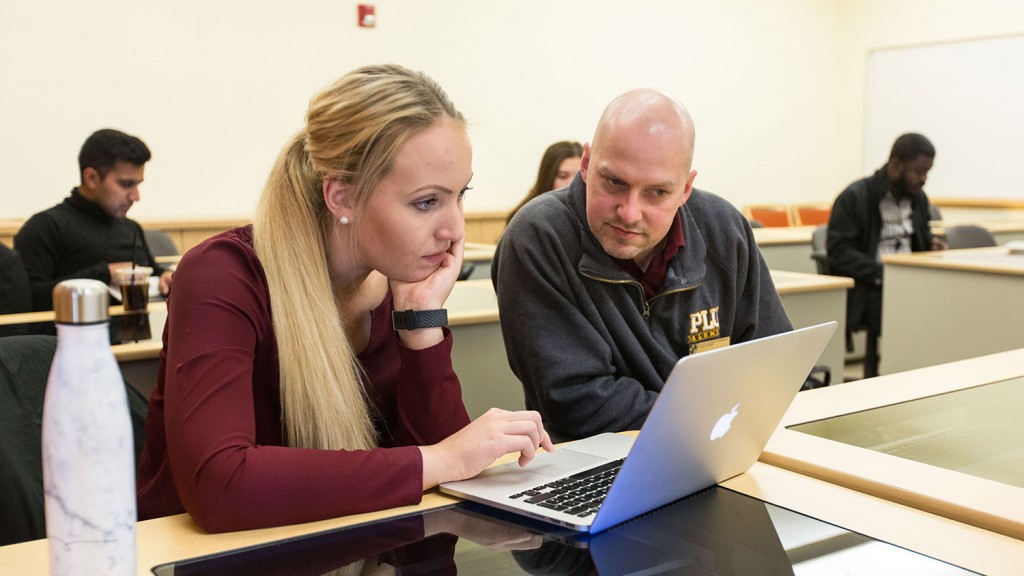Real-world experience, distilled: PLU marketing analytics grad students partner with Heritage Distilling Company

Image: PLU Master of Science in Marketing Analytics recent graduates Matthew Dixon ‘19 and Ingeborg Jore ‘19. (Photo: John Froschauer/PLU)
By James Carpenter
Guest Writer for Marketing & Communications
TACOMA, WASH. (Oct. 31, 2019) — When most people hear the words “Master of Science in Marketing Analytics,” they don’t immediately think of the marketing challenges facing a craft liquor distillery. Yet those challenges have been top-of-mind for Pacific Lutheran University MSMA students Matthew Dixon ‘19 and Ingeborg Jore ‘19.
Dixon and Jore spent two semesters working with Gig Harbor-based Heritage Distilling Company (HDC) on a Master of Science in Marketing Analytics (MSMA) graduate client project. “Inspiration for the client project can come from a lot of different places, and I think ours was my interest in alcohol,” Dixon laughs. “That sounds horrible, doesn’t it?”
“A big part of what you learn in the MSMA program is how to network with people, and our project came from a happy networking accident last year,” explains Dixon, who earned his math degree at PLU before beginning the program. “I was talking with MSMA director Mari Peterson about alcohol, and she told me about a PLU faculty member who had a connection to someone at HDC. I followed up with that connection, and Inge and I had our project.”
For MSMA students at PLU, the client project serves as a program-culminating project that pairs them with industry clients for a deep dive into real-world marketing. MSMA students begin their project in the fall and finish with presentations and white paper submissions in May. For the nine months in between, students are immersed in both their project and the program’s classroom-based learning.
“Real-world problem-solving is required by the MSMA curriculum,” says Assistant Professor of Marketing Kyoungnam Catherine Ha. “The project allows me to understand my students’ goals. Their presentations are usually really good and the clients’ satisfaction in their work is very rewarding.”
Once Dixon and Jore were connected with staff at HDC, they began working with the company as market research consultants. They were presented with the challenge of creating innovative ideas to maintain and grow HDC’s market position, ultimately focusing on research into how to appeal to millennial consumers.
Using various qualitative and quantitative methods and pairing psychology with marketing, Dixon and Jore presented many significant findings to HDC. Their final presentation and paper emphasized the importance of channel selection when executing specific targeted campaigns, and recommended the best social media sites for different campaigns. Other findings identified demand in new niche markets that HDC could capitalize on, as well as possible partnerships with local and national companies that could increase consumer awareness.
“I didn’t really know what I was getting into!” Jore says. “I think the biggest challenge was that we were learning a lot of different techniques in class while we were working with Heritage, so we had a lot of new things to learn at the same time we were doing the project.”

The project required Dixon and Jore to use a wide variety of research and analysis methods taught in the MSMA program. The students were prepared, and their individual strengths proved to be an ideal match for their project.
“Our pairing up on the project was not an accident,” Dixon says. “My background is in mathematics and Inge’s is in marketing, so we could teach each other a lot. We both worked on everything, but on the data analysis side, when it got really quantitative, I’d show her what I was doing. Whereas, when it came to the marketing side and coming up with the creative ideas, she’d be showing me the ropes.”
The MSMA’s focus on real-world experience is perhaps its most unique strength, Dixon says. “You’re not only learning technical skills in the classroom, but you get all these opportunities to go out into the real world and get the kind of experience there that you’d otherwise only get as an intern or an employee.”
The MSMA degree and client project are designed to make a critical difference on the resumes of MSMA graduates, explains program director Mari Peterson. “A graduate degree will translate to three to five years of work experience,” Peterson says. “The project allows our students to share the skills they’ve learned with clients as real-work experience on their résumés.”
Jore and Dixon now feel well equipped to pursue jobs in their respective fields of interest — market research for Jore, and data science for Dixon. Of course, they also gained a refined appreciation for Heritage Distilling Company’s products.
“I’m not as into the flavored stuff, but I’m a really big fan of their bourbon, especially their Special Forces Bourbon,” Dixon says. Jore, as usual, has the other side covered. “I tend to like the flavored stuff,” she says with a laugh. “I’d never tried Heritage products before we started working with them, but I’m a millennial so I’m their target — which was good for our work!”



